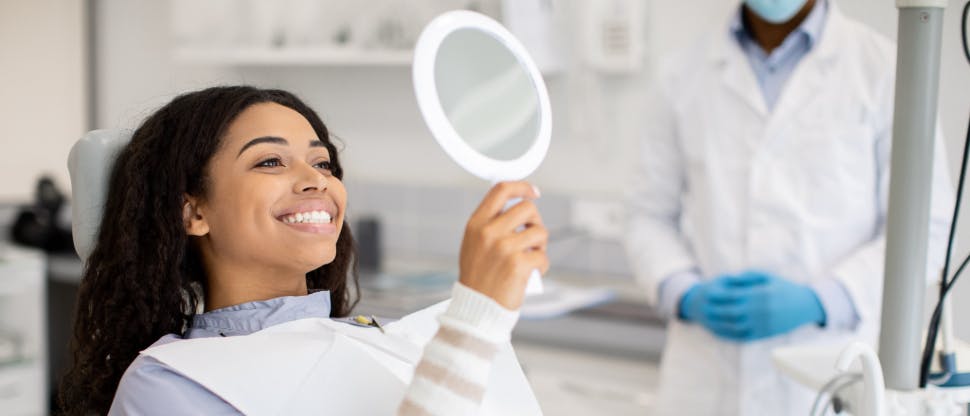Patient’s Guide to Preparing for Professional Teeth Whitening with Sensitive Teeth

Preparing for Professional Teeth Whitening: A Guide for Patients with Sensitive Teeth
dental offices. However, the journey to a brighter smile involves more than just the treatment itself—especially if you have sensitive teeth. It’s important to prepare for the procedure, and maintain a good oral hygiene regimen after, as advised by your dental professional. Read on for common suggestions for preparing for your treatment and maximizing the final results.
Preparing for Professional Teeth Whitening
For those who already have sensitive teeth, teeth whitening procedures may exacerbate the symptoms.1 While increased tooth sensitivity and gum irritation can be common side effects of teeth whitening, these symptoms will typically fade within several days.2
That’s why it's essential to discuss any sensitivity concerns with your dentist before your appointment. Your dentist can recommend treatment plans that best address your individual needs, whether it’s the choice of a specific type of teeth whitening treatment or a recommendation to use a sensitivity toothpaste like Sensodyne, which may help ease discomfort caused by whitening for those diagnosed with sensitivity when used 2 weeks prior to and following their treatment to help care for sensitive teeth. This preparation step may ensure a smoother whitening process.
During and After the Whitening Treatment
Before the procedure, your dental professional can choose from different methods to whiten your teeth. The most common treatments are UV light therapy and specialized whitening gels with concentrated bleaching agents applied directly to your teeth.1
After your teeth whitening treatment, it’s important to maintain the whitened results by limiting highly pigmented foods such as berries or beverages like coffee and sodas that can cause stains on teeth.2 Smoking and tobacco use may also cause discoloration and can form new stains on your enamel.3
Keeping up with regular oral hygiene and using specialized over-the-counter (OTC) whitening toothpastes can help to extend the effects of a professional whitening treatment. Specialized products are great options for those looking to achieve a whiter smile, while also preventing tooth decay, but are prone to tooth sensitivity. Try a dual-action toothpaste like Sensodyne Clinical White, with clinically proven whitening specially designed for sensitive teeth. It’s an effective option tailored to those with sensitive teeth that actively whitens and prevents stains 24/7.**
It’s reasonable to wonder: how long does teeth whitening last? It’s difficult to predict the longevity of a professional whitening treatment due to stain-causing foods and beverages consumed in modern-day diets. Speak with your dental professional regarding ways to increase the longevity if your whitening treatment.2
Is Professional Teeth Whitening Worth It?
Professional teeth whitening can be a game-changer for your smile, but preparation and aftercare are crucial for optimal results. The decision to undergo professional teeth whitening is a personal one. You can help mitigate tooth sensitivity by closely following any suggestions for aftercare provided by your dental professional.
*vs. a non-whitening toothpaste with twice daily brushing**with twice daily brushing